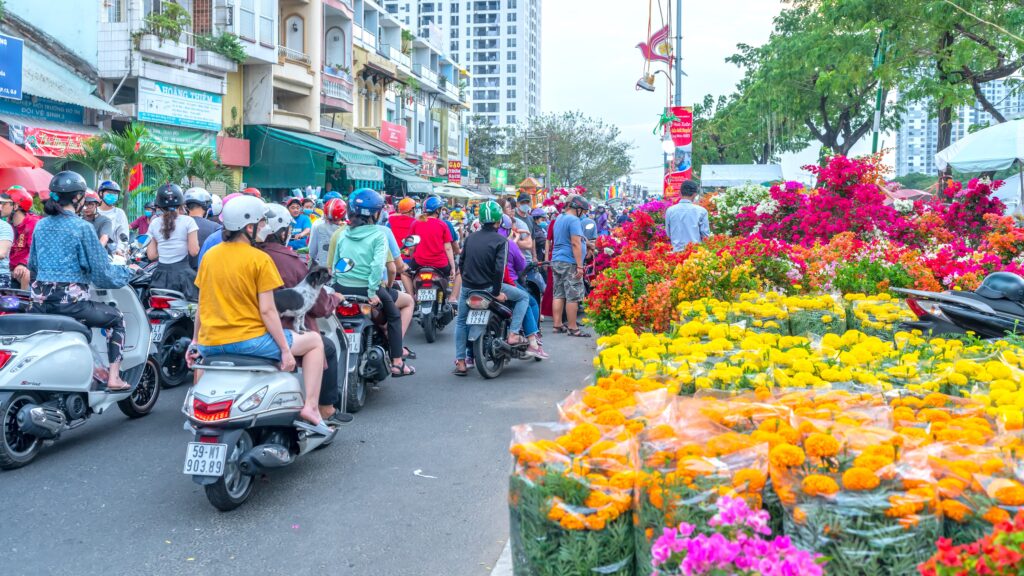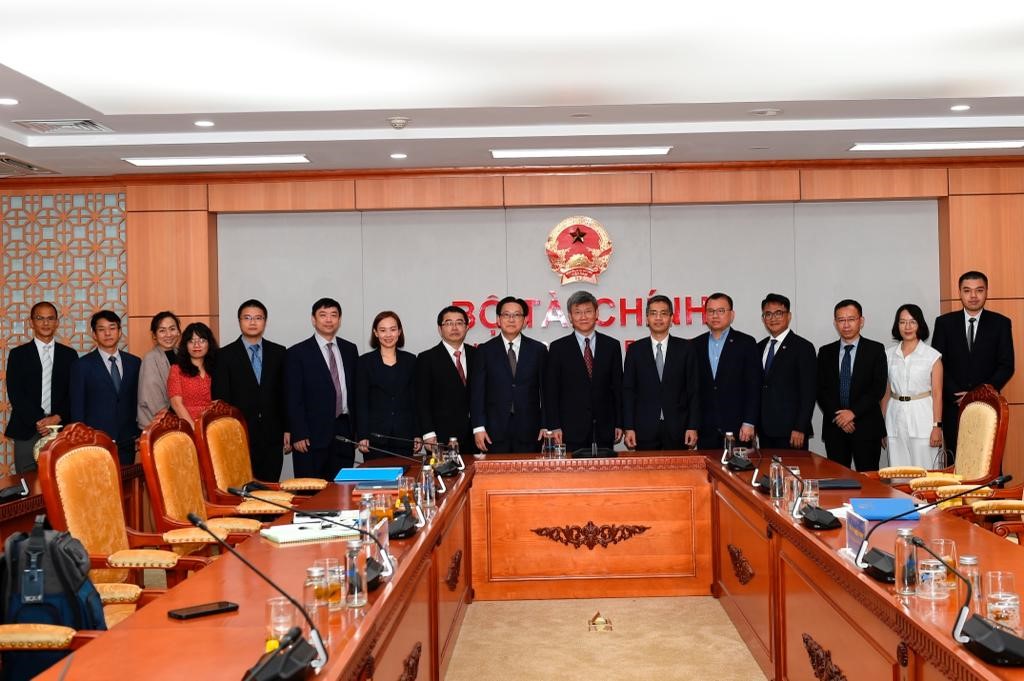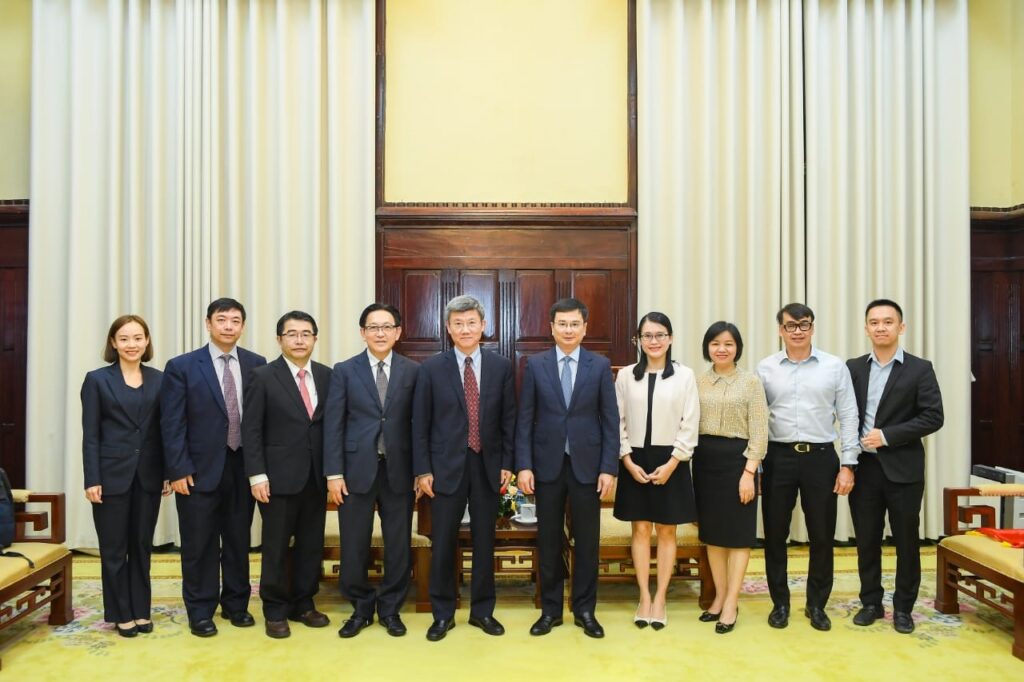
Image: Huy Thoai / Shutterstock.com
SINGAPORE, October 11, 2023 – After the sharp slowdown in the first quarter of this year, Vietnam’s economic growth has picked up subsequently, with signs of increasing new orders and improving business confidence. Looking ahead, the near-term outlook is tilted toward the downside, driven by uncertainty in the global economy and domestic housing market downturn. Amid these headwinds, authorities need to recalibrate the existing stimulus measures to support the economy, especially micro, small and medium enterprises (MSMEs), and vulnerable households. This is according to the preliminary assessment by the ASEAN+3 Macroeconomic Research Office (AMRO) after its Annual Consultation Visit to Vietnam from September 20–October 3, 2023.
The AMRO team was led by Lead Economist Sumio Ishikawa, while AMRO Director Kouqing Li and Chief Economist Hoe Ee Khor participated in the policy meetings. The discussions focused on recent economic developments and outlook, risks and vulnerabilities, and policy response.
Economic developments and outlook
“The Vietnamese economy is forecast to moderate to 4.7 percent in 2023 before rebounding to 6.0 percent in 2024,” said Dr. Ishikawa. “Elevated headwinds from weakening global demand and the downturn in the local housing market call for the recalibration of macroeconomic policy mix to support the economy and safeguard financial stability.”
The outlook for Vietnam’s economic growth in the near term remains fragile as the global economy is forecast to grow moderately. Inflationary pressure remains under control, thanks to adequate domestic food production, temporary cuts of oil-related taxes, and administered prices. Consumer price inflation is expected to increase marginally to 3.3 percent in 2023 and 3.4 percent in 2024.
On the external front, the contraction of export would be offset by import compression and rising tourism income. Foreign direct investment (FDI) inflows remain strong amid global supply chain reconfiguration. Trade surpluses and resilient FDI inflows will be the key factors behind the overall balance of payments surplus.
Risks and vulnerabilities
Risks to growth outlook are tilted toward the downside, with high uncertainty surrounding external demand and the downturn in the local housing market. Meanwhile, there are upward risks to inflation stemming from prolonged geopolitical tensions, rising global oil prices, and extreme weather caused by El Niño affecting food production and prices.
The financial sector faces elevated credit risk. The challenging economic environment has led to a rise in the non-performing loan ratio. Moreover, some real estate developers are struggling with debt repayment and refinancing are at risk of becoming insolvent. The diminishing liquidity in the corporate bond market may result in corporates being unable to roll over debts, thereby heightening default risks.
Difficulties in nurturing MSMEs and a shortage of skilled technical workers could pose challenges to the country’s competitiveness. A rapidly aging population will weigh down on the country’s medium- to long-term growth potential. Lastly, the country is becoming increasingly exposed to climate risks.
Policy recommendations
The government has implemented several measures to support growth, including temporary reduction and deferral of land rent and some taxes, operating interest rate cuts by 150 basis points, and credit support measures. Going forward, in light of strong headwinds and financial distress in the residential property market, an appropriate policy mix should be employed to support growth, while maintaining financial stability.
With output still below potential and available fiscal space, fiscal policy should offer targeted support to MSMEs and vulnerable households adversely affected by the country’s weak economic condition. Expediting state capital investment would also boost growth. Over the medium term, fiscal policy should focus on improving tax administration, broadening the tax base, enhancing spending efficiency, and strengthening social protection.
Accommodative monetary policy has eased the financial burden on vulnerable borrowers, and to some extent, bolster business and consumer confidence. The monetary policy stance should be normalized once economic recovery is on track. Modernizing the monetary policy framework, including transitioning to a more market-based policy, would allow monetary policy to support the economy more effectively.
On the financial system side, the banking sector should increase provisions, capital and liquidity buffers to safeguard against rising risks. Macroprudential measures should be put in place to contain speculation in the housing market. Improving corporate governance of financial institutions, enforcing financial consumer protection, enhancing financial literacy, strengthening information disclosure in the corporate bond market, and reducing financial leverage of some real estate developers will preserve financial stability over the longer term.
Concerted efforts should be made to promote green, inclusive, and sustainable growth. Increasing MSMEs’ access to financing through the expansion of credit guarantee funds could be considered. More resources should be directed to increase the availability and quality of education and vocational training. Amid intensifying climate risks, more attention should be paid to climate mitigation and adaptation.
On behalf of AMRO, the mission team would like to express their appreciation to the Vietnam authorities and other counterparts for their cooperation, insightful discussions, as well as hospitality.
About AMRO
The ASEAN+3 Macroeconomic Research Office (AMRO) is an international organization established to contribute towards securing macroeconomic and financial resilience and stability of the ASEAN+3 region, comprising 10 members of the Association of Southeast Asian Nations (ASEAN) and China; Hong Kong, China; Japan; and Korea. AMRO’s mandate is to conduct macroeconomic surveillance, support regional financial arrangements, and provide technical assistance to the members. In addition, AMRO also serves as a regional knowledge hub and provides support to ASEAN+3 financial cooperation.

AMRO Director, Kouqing Li and Chief Economist, Hoe Ee Khor and the AMRO Vietnam team met with Vice Minister, Thanh Hung Vo, and other officials from the Vietnam Ministry of Finance.

AMRO Director, Kouqing Li and Chief Economist, Hoe Ee Khor and the AMRO Vietnam team met with Deputy Governor, Thanh Ha Pham, and other officials from the State Bank of Vietnam.
